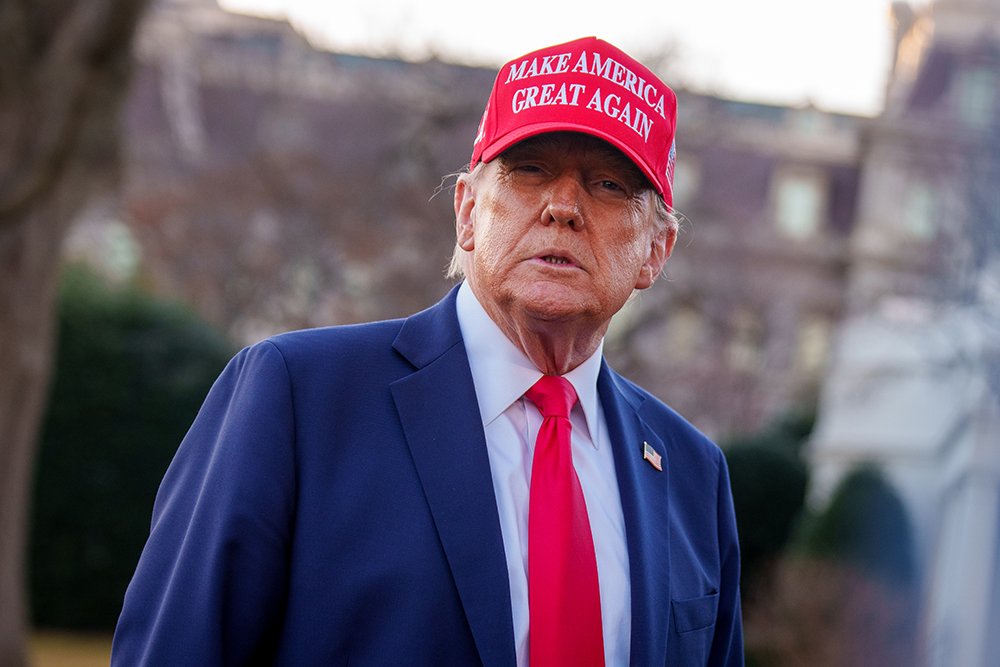
It is meet, right and our bounden duty to begin any column about Ukraine with a vigorous expression of the columnist’s distaste for the President and Vice-President of the United States. Consider that done. Donald Trump is a slob, a bully and a liar: a person of low character. J.D. Vance is a nasty and morally confused little snake: a thug’s venomous sidekick.
It is also an appropriate preliminary courtesy to state without hesitation that Volodymyr Zelensky is a brave and inspirational warrior whose personal qualities set his country firmly on the path of resistance to an unprovoked attack. Done.
And, finally, it is necessary if superfluous to repeat that Vladimir Putin is a monstrous despot whose fantasies about regaining his country’s imperial sway endanger all his neighbours. Utterly untrustworthy, President Putin is a cold-blooded visionary.
So there. Having said what goes without saying, may we proceed?
I’m beginning to wonder whether Zelensky is becoming a bit of a problem, and Trump’s unintending accomplice in the side-lining of Ukraine from negotiations. A negotiation is taking place between Ukraine’s principal military sponsor, the United States, and Ukraine’s aggressor, the Russian Federation. By shouting from the wings that Ukraine should have a veto in these negotiations, and implying that he’d find any ‘land for peace’ compromise unacceptable, he lends weight to Trump’s insistence that in the end, he and Putin must decide. Zelensky thus undermines his country’s core interests.
Three questions. What are Ukraine’s core interests? What can we guess about Russia’s bottom line? And is there any limit to Trump’s seeming acquiescence to Putin’s demands?
My week in Ukraine in February last year taught me something I’m not sure we’ve quite absorbed in commentary here at home. Travelling by bus from Moldova to Odessa, thence by train to Kyiv, then north by car past Bucha, and finally by train to Lviv and thence by bus to Poland, I made it my business to talk to the under-25s in the two-thirds of the country firmly under Ukrainian control, where life goes on in a normal way.
Based partly on that journey, I can with confidence say two things about Ukraine’s ‘core interests’ – as seen by Ukrainians. Firstly, Crimea and the eastern Russian–speaking borderlands are not among them. Russian occupation there is a de facto reality that, consciously or unconsciously, Ukrainians are capable of reluctantly accepting. Recent polls suggest around half the population already say so. More must privately feel it. Even last year, younger people did not strike me as having any stubborn resistance to a land-for-peace compromise. Secondly, men under 25 (and their wives or mothers) are terrified of the trenches in the east – of conscription.
So I believe ordinary Ukrainians are ahead of their president in anticipating and accepting compromise on land borders. Their great fear, however, is the obvious one, and quite different: that, having digested his winnings, Putin might later want another bite.
What are Russia’s red lines? Can Trump really see the outline of a deal acceptable to Moscow?
Next to my second question: what, today, is Russia’s bottom line? Again, a couple of observations. Firstly, I feel certain Moscow could never accept a European peacekeeping force stationed in Ukraine. I’m emboldened in this hunch both by Sergei Lavrov, Russia’s foreign minister, who said so (again) last week, and by the commentary of Anatol Lieven, formerly a professor in the war studies department at King’s College London and now director of the Eurasia programme at the Quincy Institute for Responsible Statecraft. Washington, London and Paris must surely know such a peacekeeping operation won’t happen. This would explain Sir Keir Starmer’s and Emmanuel Macron’s noisy readiness to provide troops for what they secretly know will never be required; and Trump’s refusal to provide cover for a force (and an idea) that he knows to be a non-starter with Moscow.
Secondly, there’s no way Russia is going to relinquish any land it already holds. Surely that’s obvious? Not that that has always been the case for Zelensky. Fortunately it may have been quietly dropped as a demand during talks with US officials in Jeddah this week.

Which brings us to my final question: what are Russia’s red lines? Can Trump see them yet? Can he (as he claims) see the emerging outlines of a deal acceptable to Moscow? The answer is we don’t know. But once Zelensky and his ‘victory’ narrative have been brushed aside, we shall find out. With distractions like a European peacekeeping force or a Russian retreat from occupied territory out of the way, what is Moscow’s bottom line?
We can make an informed guess. No to Nato or EU membership, a ‘neutral’ status, no defence forces worthy of the name and a more Moscow-compliant leadership. Europe will think this intolerable but, with Zelensky’s unwitting help, any real compromise has been put beyond reach, and Trump will shout this at us in his capital letters. He will then accede to Moscow’s principal demands.
And now I’m going to take a real flyer. I don’t think that this US President actually wants Europe to pay up and shoulder the peacekeeping burden. Such demands, which he can always declare un-met, are his excuse for switching sides. He wants Putin to win. He wants Benjamin Netanyahu to win by slaughter, not a compromise solution for the Middle East. He admires Xi Jinping and couldn’t care less about Taiwan. He wants to join an elite gang of big-boy geopolitical bullies.
We in the rest of the West are mistaken in seeing Trump as a hard-bargaining dealmaker. He isn’t looking for a deal. He is joining our enemies. The sooner we wake up to this, the sooner we forsake our hopes and ditch the flattery, the better.









Comments